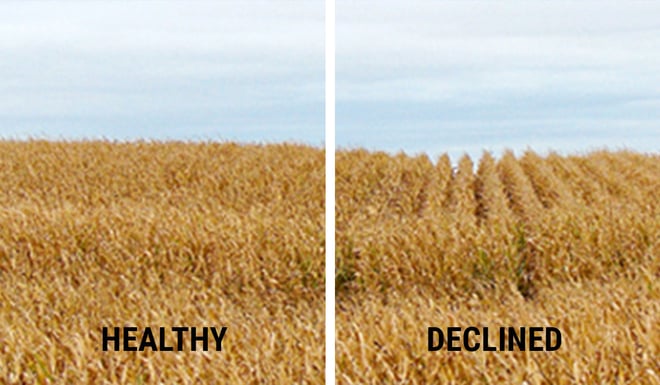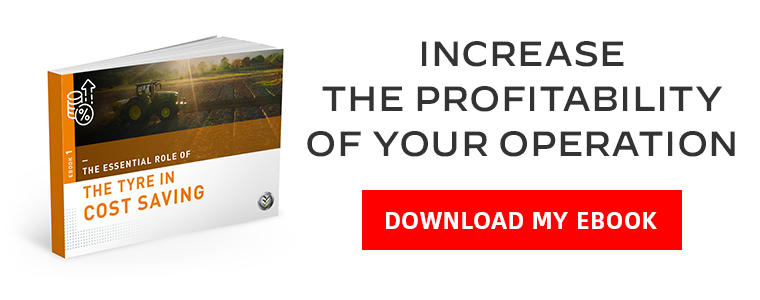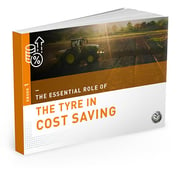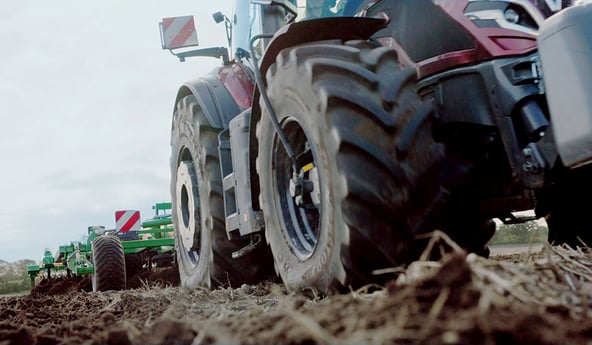The results of soil compaction by my tractor tyres may appear to be incidental, and there are of course many more important things to worry about on the farm.
But contrary to appearances this slow and progressive soil compaction leads to an irremediable decline in production over time, and consequently to a reduction in your revenue. Learn just how far your production and yield can be impacted:
What is the harvest like after several years of soil compaction?
Soil is a complex combination of solid materials (mineral and organic), water, air and living organisms. The solid matters are present as aggregates of varying shapes and sizes which, under the pressure of your tractor tyres, come closer and closer together. The breakdown of these aggregates determines your soil structure. And as you know, good soil structure is essential for healthy plant growth. Roots have difficulty penetrating compacted soil, and generally do not grow deep if the soil has been repeatedly compacted over several years. They will be less capable of absorbing the nutritional elements and moisture that they require to thrive.
If you have regularly compacted your fields, without adapting the pressure of your tractor tyres (or trailer tyres), without taking into account the agricultural tyre load index, if you overload your hoppers, or your trailers, if you are using tyres with a diagonal structure rather than radial, if you are using a cheap agricultural tyre, or a discount agricultural tyre, then your production losses due to soil compaction can be anywhere between 20% to 50% (see images below).
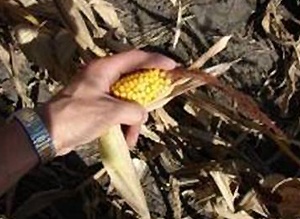
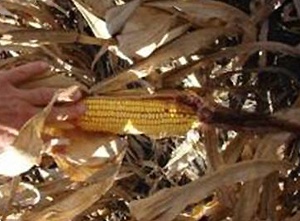
ON THE LEFT : Stunted corn due to excessive soil compaction
ON THE RIGHT : Healthy corn
Unecessary spending and unforeseen consequences
Over time, the compaction will reach the deep layers of the soil and will generate expenses that you may associate with other costs without realising that they are due to excessive compaction occurring over a long period.
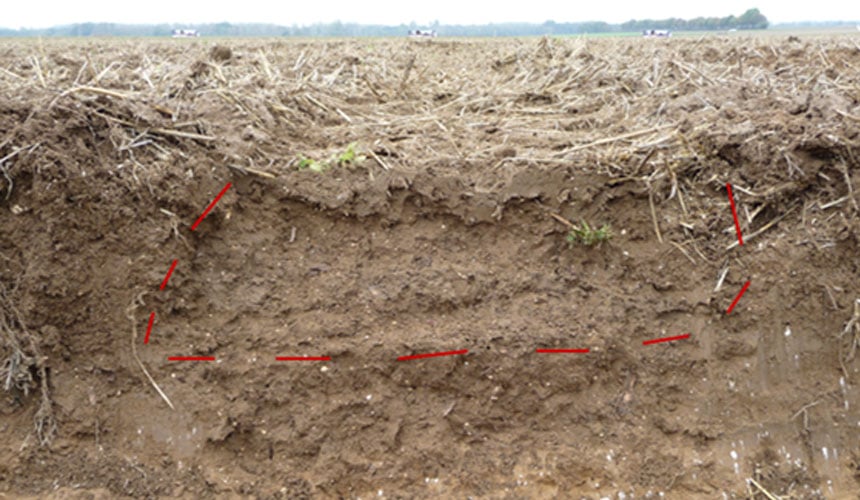
» Runoff and erosion
Soil compaction accelerates soil erosion by canalising the water which flows on the surface, preventing uniform irrigation of the land and limiting the storage of water deep down.
But this stock of water is essential for your crops during dry periods.
» Loss in input effectiveness
Poor water circulation in heavily compacted soil can result in greater leaching of the inputs and phytosanitary products that you use.
Their action will not be optimised which will result in a reduction in quality (reduced nitrogen rate in the soil, losses due to diseases, etc.).
» Increase the quantity of inputs required
Compaction reduces the soil’s biological activity. This will require the use of extra fertilizer to compensate for the lack of nutriments generally produced naturally by the micro-organisms contained in the soil.
» Loss of product quality
In the specific case of tuber crops (carrots or beets, for example) in which the harvested part of the plant is the root, the root development will be limited by an overly compacted soil yielding misshapen or irregular products. These products will be worth less than healthy crops (reduced price).
The solution to the problem of soil compaction: the low-pressure tyre
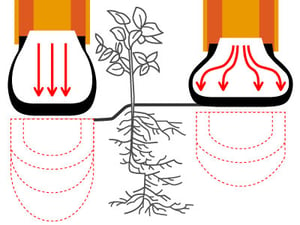
Purchasing a VF agricultural tyre (low pressure tyre) may seem like an excessive expense, but your soil is your capital, you need to protect it to achieve the best harvest for the future.
Contrary to a tyre with a diagonal structure (cheap agricultural tyre) which requires high pressure to carry the load, the VF technology tyre has a reinforced sidewall structure which enables it to work at very low pressure (0.8 bar), the load is distributed across a large ground surface and therefore has no consequence on soil compaction. As you can see in this image, the root structure of the plants has normal development in the deeper layers which are not subjected to excessive soil compaction.
The bridgestone-agriculture.eu blog is written by agricultural tyre experts who are available to provide you with the advice you need to maximise your productivity (How to ballast your tractor tyres - Technical data for agricultural tyres - Agricultural tyre performance - Pressure advice for agricultural tyres - Soil compaction solutions - Sprayer tyre pressure, etc.)
To take it a step further and increase the profitability of your farm, the agricultural tyre experts provides a free, highly detailed eBook which explains the essential role of the agricultural tyre in your productivity.
Most people who read this article have also read some of the following articles:
- 9 major points on soil compaction linked to tractor tyres
- What you need to know about soil compaction caused by your tractor tyres
- Protect your soil during harvest for successful sowing in the future
- How to reduce soil compaction after harvesting?
- 3 soil conditions to understand to avoid compaction by your tractor tyres
- What type of farming tyre is best for preventing ruts?
This information is intended only to make you aware of the technical and functional aspects of agricultural tires and their use. It does not allow you to make a judgment or a definitive conclusion on a given problem. Only your agricultural tire expert is able to make a technical assessment and take a final decision, case by case.
Leave a
commentary
Your email address will not be published.
Required fields are indicated with *


